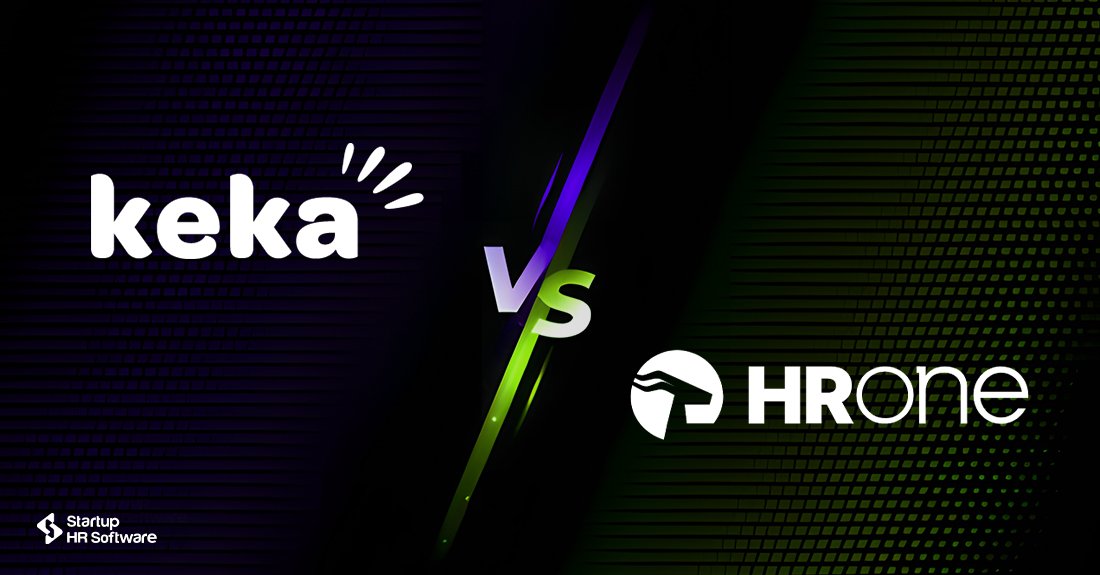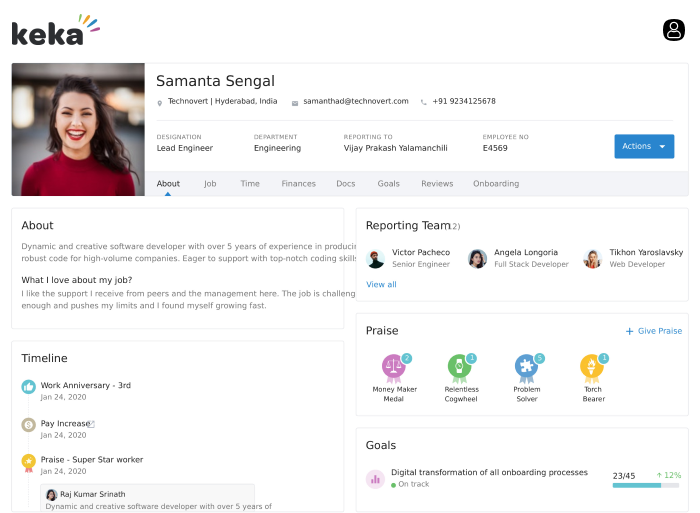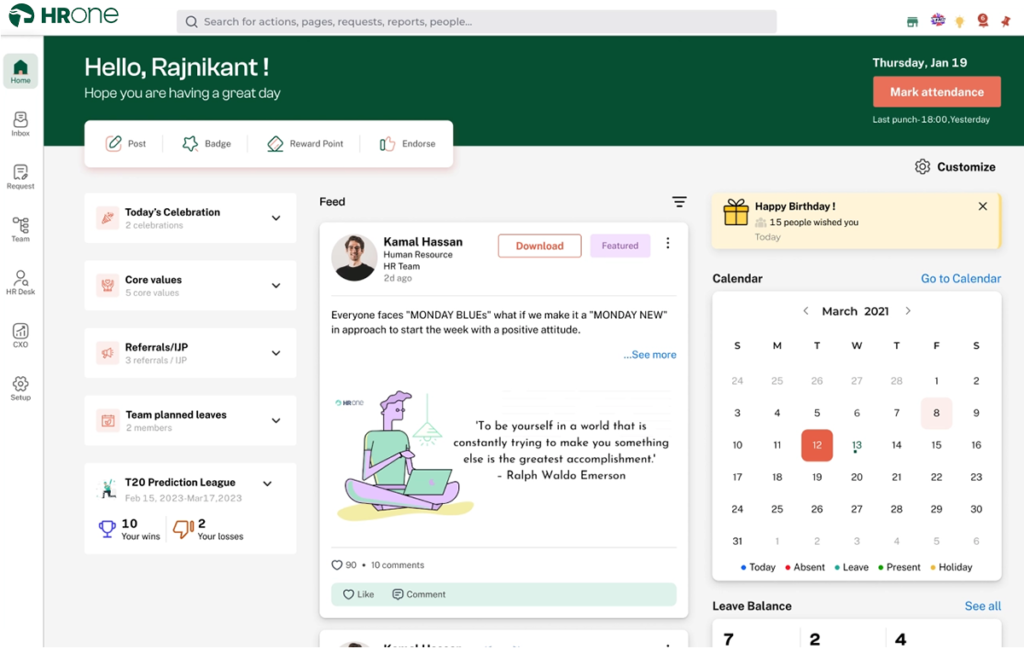Need help to choose the Best HR software for your organization’s needs? Let’s compare HROne vs. Keka HR to find the best solution for your requirements. Compare software prices, features, support, ease of use, and reviews to make the best choice and decide whether HROne or Keka HR fits your business.
Product Summary
![]()
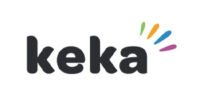
KEKA HR
Keka HR is a comprehensive cloud-based HR and payroll software solution designed for mid-sized to large enterprises. Established in 2015, Keka HR offers a range of features to streamline HR operations, including performance management, recruitment, and payroll processing.
Key Details:
Founded: 2015
Headquarters: Hyderabad, India
Key Features: Payroll management system Attendance & Leave management Applicant Tracking System Performance Management System Timesheet Travel & Expense
Starting Price:
₹ 8500.00 / Per Month
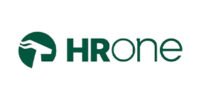
HR One
HR One is a comprehensive HR software solution designed to streamline various human resources functions for organizations. Here are some details about the company and its software:
Key Details:
Founded: 2013
Headquarters: Noida, India
Key Features: HROne helps these startups, SMEs and Corporations that struggle to bring order with a combination of 12+ modules: Recruitment, Expense, Training, Workforce, Attendance, Helpdesk, Payroll, Performance and more. The modular software also gives clients the ability to create dynamic workflows
Starting Price:
₹ 9999.00 /Per Month
Funding
![]()

KEKA HR

HR One
HROne, an HR software company specializing in Human Resource Management Systems (HRMS) and related services, has raised funding in various rounds to support its growth and development. Here’s a summary of the funding history for HROne:
- Seed Round: HROne raised an undisclosed amount of seed funding in 2019. This initial round was aimed at developing their HR software solutions and expanding their market reach.
- Series A: In 2020, HROne secured $10 million in Series A funding. This round was led by Matrix Partners India and included participation from existing investors. The funds were intended to enhance product development, scale operations, and expand their customer base.
- Series B: In 2022, HROne raised $30 million in Series B funding. This round was led by Google Ventures (GV) and included other prominent investors. The investment was focused on accelerating growth, expanding their product offerings, and increasing their market presence.
Human Resources Management Feature
![]()

KEKA HR
- Employee Database Management
- Attendance Management
- Leave Management
- Payroll Processing
- Expense Management
- Performance Management
- Recruitment Management
- Employee Self Service
- Timesheet Management
- Shift Management
- Hr Analytics
- Document Management
- Training Management
- Onboarding
- Exit Management
- Compliance Management
- Mobile App
- Custom Workflows
- Employee Engagement
- Asset Management

HR One
- Expense Management
- Hr & Payroll
- Training Management
- Asset Management
- Employee Self Service
- Hr Analytics
- Loan & Advances Management
- Task Management
- Exit Management
- Employee Engagement
- Help Desk
- Payroll Management
- Exit Management & Separation Management
- Leave Management
- Employee Onboarding
Categories
![]()

KEKA HR
- Applicant Tracking
- Business Performance Management
- Human Resources
- Payroll
- Time and Expense

HR One
- Human Resources
- Payroll
Pros & Cons
![]()

KEKA HR
Pros:
User-Friendly Interface: Easy to navigate for both HR teams and employees.
Comprehensive Features: Covers recruitment, onboarding, payroll, performance management, and more.
Customization: Tailor workflows and reports to fit your organization’s needs.
Employee Self-Service: Employees can manage their records, leave requests, and payslips.
Integration Capabilities: Connects with various third-party applications and systems.
Cons:
Learning Curve: Some users may find learning challenging, especially if switching from another system.
Cost: It can be pricey for small businesses or startups.
Customer Support: Some users need help with response times and support quality.
Customization Complexity: Advanced customization might require extra time or expertise.
Integration Issues: Possible problems with specific integrations or compatibility.

HR One
Pros:
Comprehensive: Offers features for payroll, recruitment, performance, and employee self-service.
Customizable: This can be tailored to fit your organization’s needs and is scalable.
User-Friendly: Easy for HR staff and employees to use, with a self-service portal.
Compliance and Reporting: Helps with legal compliance and provides valuable reports.
Support: Provides various support options like phone, email, and on-site help.
Cons:
Cost: It can be expensive, especially for smaller companies.
Implementation: Setting up the software can take time and effort.
Learning Curve: Staff might need training to use the system effectively.
Customization Limits: There may be restrictions on how much you can customize without extra costs.
Integration: Integrating with other systems you use may be challenging.
Specifications
![]()

KEKA HR
Business
- Startups
- SMBs
- Mid-Market
Accessibility
- API
- Free Trial
- Mobile Support
- Customization
Available Support
- Phone
- Live Support
- Training
- Tickets
Payment Type
- Yearly
- Monthly
Desktop & Mobile Platforms
- Web App
- iOS
- Android

HR One
Business
- Startups
- SMBs
- Mid-Market
- Enterprises
Accessibility
- API
- Free Trial
- Mobile Support
- Customization
Available Support
- Phone
- Live Support
- Training
- Tickets
Payment Type
- Yearly
- Monthly
Desktop & Mobile Platforms
- Web App
- Windows
- MacOS
- iOS
- Android
Choosing the right HR software is a pivotal decision that can significantly impact your organization’s efficiency and employee satisfaction. Keka and HRone HR offer robust features to streamline HR processes, but each has unique strengths and considerations.
Keka HR stands out for its user-friendly interface and comprehensive features tailored to various HR needs, including advanced analytics and customizable workflows. Its strong emphasis on employee engagement and ease of integration with other systems make it a compelling choice for businesses seeking a holistic HR solution.
On the other hand, HRone HR excels with its modular approach, allowing organizations to select and pay for only the functionalities they need. This flexibility can be advantageous for companies with specific or evolving HR requirements. Its focus on scalability and cost-effectiveness provides a practical solution for growing businesses.
Ultimately, the best choice depends on your company’s needs, budget, and long-term goals. Consider factors such as user experience, required features, and the potential for future growth when making your decision. Keka HR and HRone HR have proven their value in the HR software landscape, so carefully evaluating how each aligns with your organizational needs will guide you toward the optimal solution.
By choosing the right HR software, you’ll enhance your HR processes and contribute to a more productive and engaged workforce. Make an informed decision to set your organization on the path to HR excellence.
